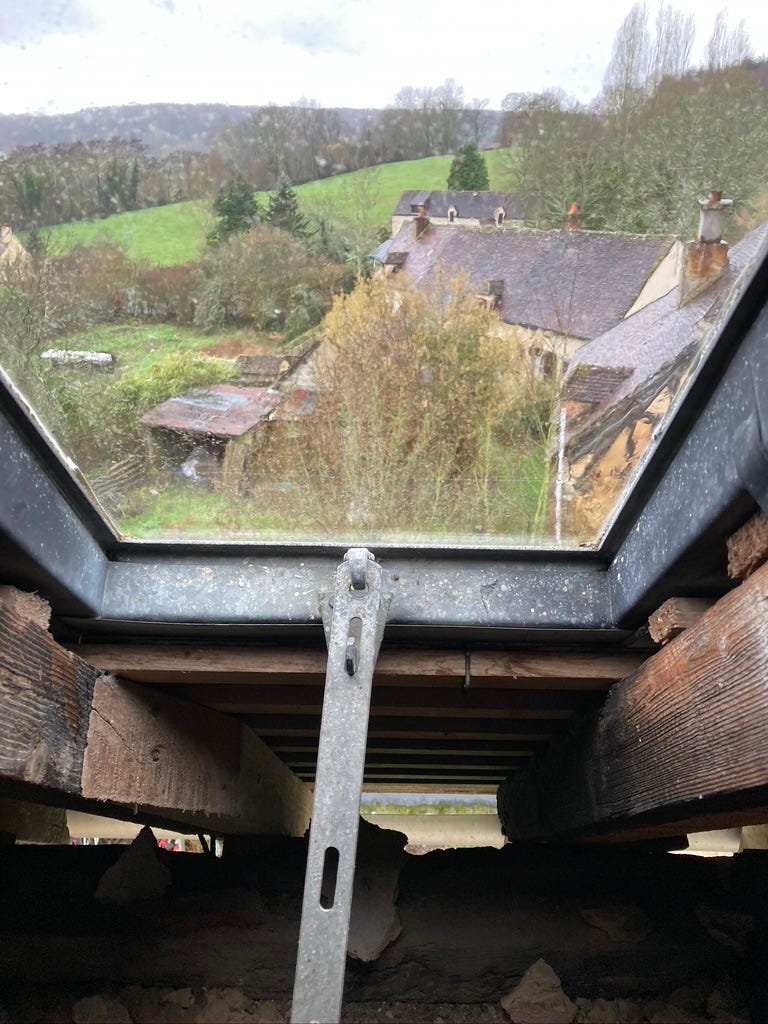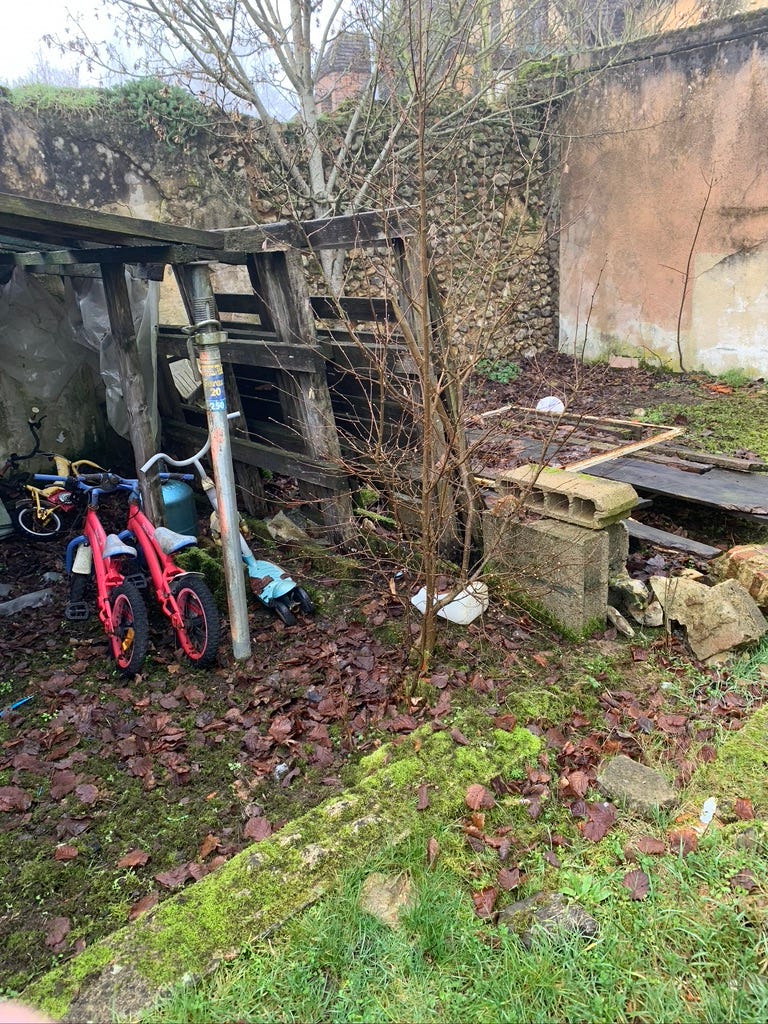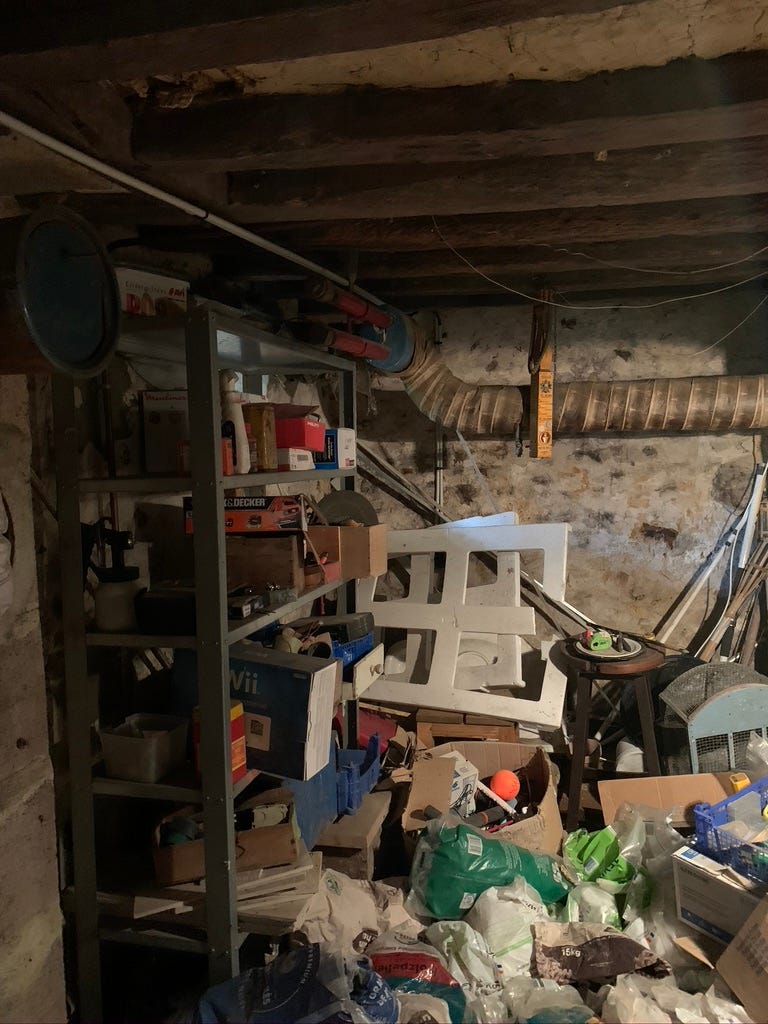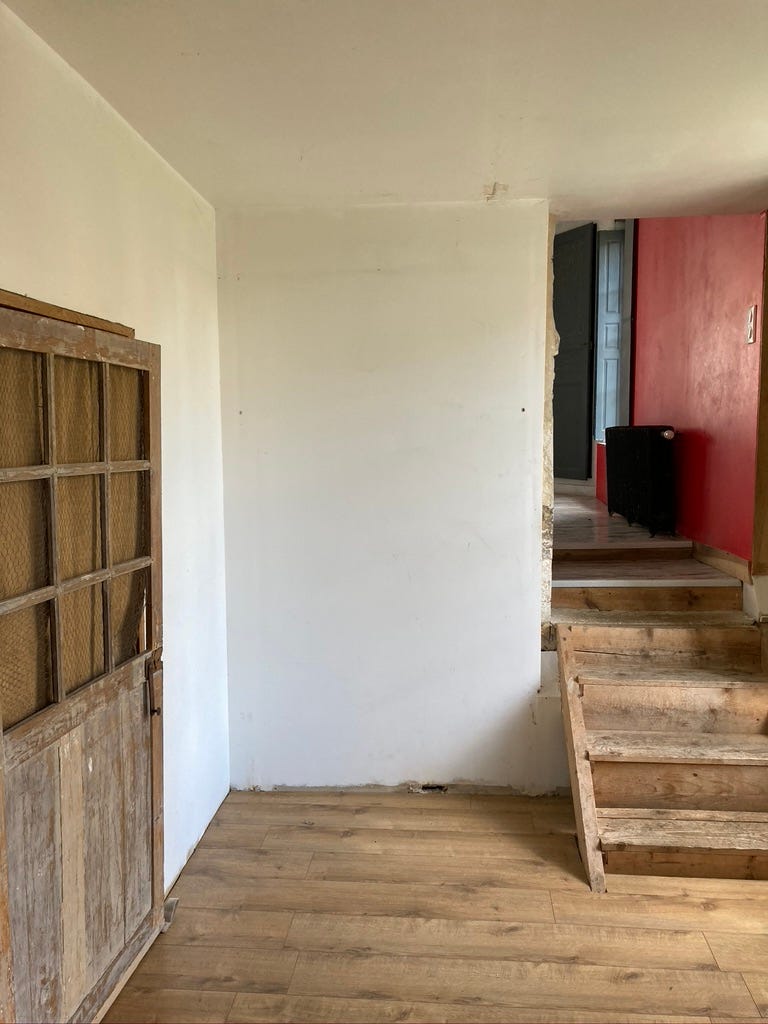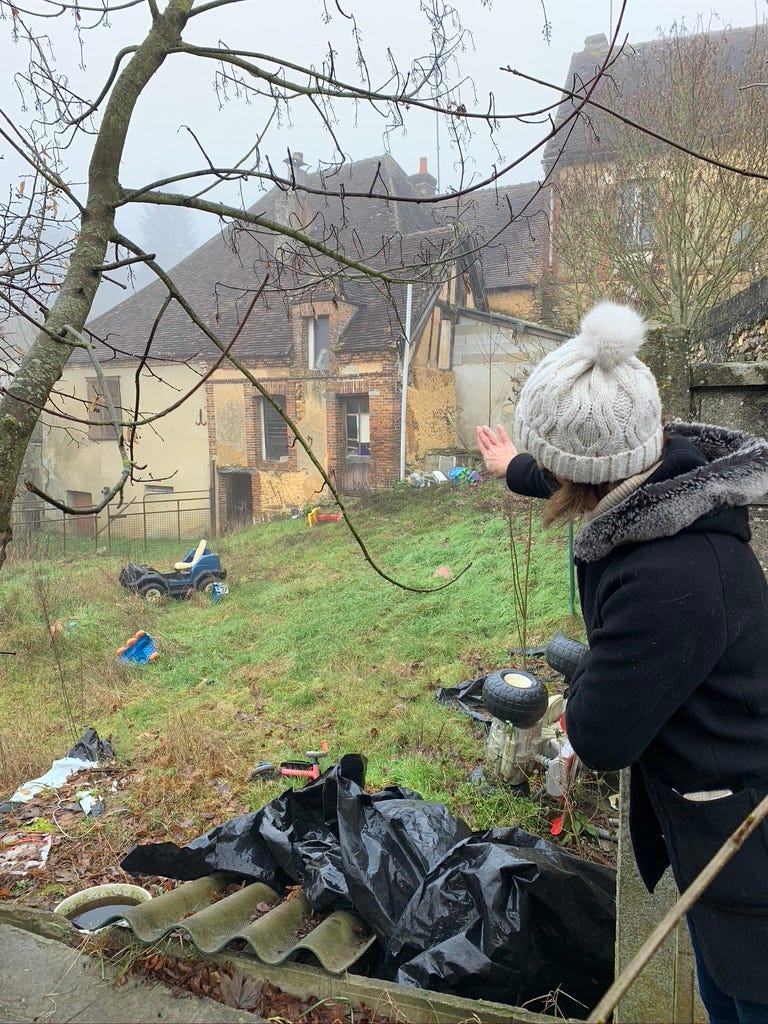Chapter Twenty-One: The *Bad Art of the Deal
Closing the house was a shit show, but at least when it was all over, the place was mine.
It was now mid-May and I needed the house to close as soon as possible so I could get started on what was looking, at every subsequent meeting, like an even more massive renovation project than I thought. I had hard early August deadlines. Because my sister and my former college roommate Charles had booked tickets to stay a few weeks starting the second week of August, and I’d need beds and bathrooms and furniture, I scored a difficult-to-get August 4th appointment for movers to meet me at my storage space, where we’d finally schlep the part of my life I’d almost forgotten about to Saint-Maxime.
These were real red letter dates that I couldn’t change no matter how much the notaires nattered on about paperwork delays. From the townhouse in Saint-Jouin, I called every other day to check in with my notaire, who had tasked most of this box-checking phase of things to a spaced out assistant. Finally after some yelling at her, and writing to the overboss of them all, full of pique, I was assured I’d have the keys by the last week of May.
There was also the question of when Monsieur and Madame, the former owners, were going to vacate. Back when they had first listed the place, they couldn’t get along enough to agree who was going to front the €200 to handle the required diagnostic attestation that the place was free of lead paint, termites and asbestos. Since then, if things had been going like I’d surmised from notaire meetings, well, just imagine the fun of their move.
They had so much to do. Since I first visited the house the previous December, the yard looked like the graveyard of the Island of Misfit toys, strewn with once-vibrant Big Wheels, deflated soccer balls and a fleet of mud-covered Matchbox-style cars. None of that had gone away. At every popover with Anka and Marius, inside was the same dirty-dish chaos as ever, too, without much evidence of carboard boxes. I started my move out of Paris a month in advance and I was behind the eight ball from day one. What should have been reducing piles of clutter in Saint-Maxime wasn’t budging.
When we finally arrived at a week before our closing day, at the end of May, we all met over at Maître Pompadour’s office to discuss logistics. Once again, I sat between Monsieur and Madame across from Pompadour’s desk, but little matter. The hissing and spitting started the moment Pompadour called us to order.
“I need to know when everything will be gone,” I said. “We do the final inspection in a week, the day before we sign, and it really needs to be gone by then. I have no leeway with this, I have workers moving in the following day.”
Monsieur to Madame: “You think you can just breeze through the house, pick out all the good stuff and then leave me with the garbage.”
Madame to Monsieur: “N’importe quoi,” with a growl. (N’importe quoi is French for “whatever.” As with English, levels of disdain are signaled via emphatic gesture and withering tone of voice.)
Monsieur: “You get your guys to get over and clear out the God damned place, we already agreed to that.”
Madame: “No we fucking didn’t.”
Me: (Pretending to ignore the show) “This includes the yard and the basement.”
The basement was a crime scene like most basements. It ran under the entire house, and you accessed it by a busted barn-style door in the backyard that might have been five feet tall. There was a tiny open window in the same wall as the door, probably for ventilation, and given the smell inside, it was clearly a passageway for stray cats. This basement contained the lowest level of family garbage like most basements do. It also held the furnace, whose functionality I still didn’t understand. We had agreed that, on the day of the walk-through, which was as much so I could understand how everything worked, as to sign off on the state of things, we’d take a moment to get me up to speed with that all-important organ of the house.
Being a natural pessimist comes in handy in situations where you don’t want any surprises. The following week, when the walk-through arrived, the place was the same furious topsy-turvy as before. Monsieur, the only one present, swore up and down, with a bashful smile and a twinkle in his eye, that everything would be gone the following day when he actually handed over the keys. I bet he pulled that flirty-I’m sorry shit on his ex all the time. This was the first time I felt actual sympathy for her.
I didn’t want to get too hostile with Monsieur before he explained the heater, which in a poorly insulated house in the middle of a damp forest region, really matters. He took me down to the basement repeating his sweaty promise that it would be empty by tomorrow morning, and led me into the middle section under the house, where the thing lived. It turned out to be Rube Goldberg machine-levels of complicated, with a greasy, smoky looking furnace, connected by a huge metal tube to a massive silo for wooden pellets, which had to be loaded into the silo by hand. The pellets were then automatically dosed and burned little by little to heat the boiler and the cast iron radiators that were all over the house.
Theoretically. It was summertime, and too hot out to fire the thing up, but Monsieur assured me it worked. It had a Czech name, and Madame had the instruction book, he was almost sure. He told me he’d leave me the extra pellets, of which there were about 20 sawdusty, very heavy bags. He waved his hands across the slouchy piles as if he were showing me a brand new Chrysler Cordoba.
I’d figure it out. I mean, what could possibly go wrong?
(Let’s put a pin in this til the first winter I’m in the house, when everything can go wrong.)
The following day, we met at Pompadour’s for the key handover, and then Camilla and I went over to the house. It was indeed sort of empty, but the yard and basement were as derelict and cluttered as ever. We called Pompadour back and told her what we were seeing. She told us to come back to the office, and she’d get Monsieur and Madame over there too.
Back at her office, soon we were all present and accounted for, and Mom was as mad as I was. Pompadour lit into Monsieur and Madame. Said she didn’t want to hear their excuses, that they were adults, and to get it together. To make it official, she told them that since she was still holding onto all the money for the house, she would be withholding €10,000 in an escrow account in case I needed to arrange for someone to come cart their shit away. Madame protested, blaming Monsieur, but she got shushed with the first real quickness I have ever seen from a French notaire. I protested the idea that I’d be the one to arrange for anything, but it was nice to at least be on the team holding the only card (money) that counted. I was assured everything would be gone by first thing tomorrow morning.
Camilla and I decided we’d be cool give them til noon the following day. When we finally popped in, it looked like everything was finally, truly gone. All the bad construction I was about tear out was that much more visible when I walked through the kitchen, but I hardly saw it because it washed over me that it was all over and now the place was really mine. Mine. Minemineminemine, like I was a two year old with a very large and complicated toy. Of course now I had to make the big toy livable, but still: MINE. A thing that I owned, all by myself. The basement still had some plastic bags and shit, but it was so minor compared to how it was before I wasn’t going to make a scene.
Madame owned the house next door as well, a total ruin she had bought for a literal bag of peanuts back when she and Monsieur had thought they’d fix it up and use it as an extension of the main house. It had been abandoned for decades, and nothing had happened since Madame bought it, except that the house continued to take on more mold and filth as the holes in the roof got bigger and nobody ever came to repair them. Our backyards were separated by a crumbling wall. If mine was a warfront squat, Madame’s was a tiny savannah, with a literally falling down shed and overgrown grass and trees. Nature had taken over.
Correction: nature and something else. I could see over the separating wall from where I stood in MY yard, and it looked like, rather than cart off all the toys and yard detritus, they had just moved them over to the yard next door and left them for the next crisis.
I can understand the inertia of trauma. Hello you’ve been reading 20 chapters of it, with a few other things going on as well. But this was just sad. Though, at least, no longer my problem.


